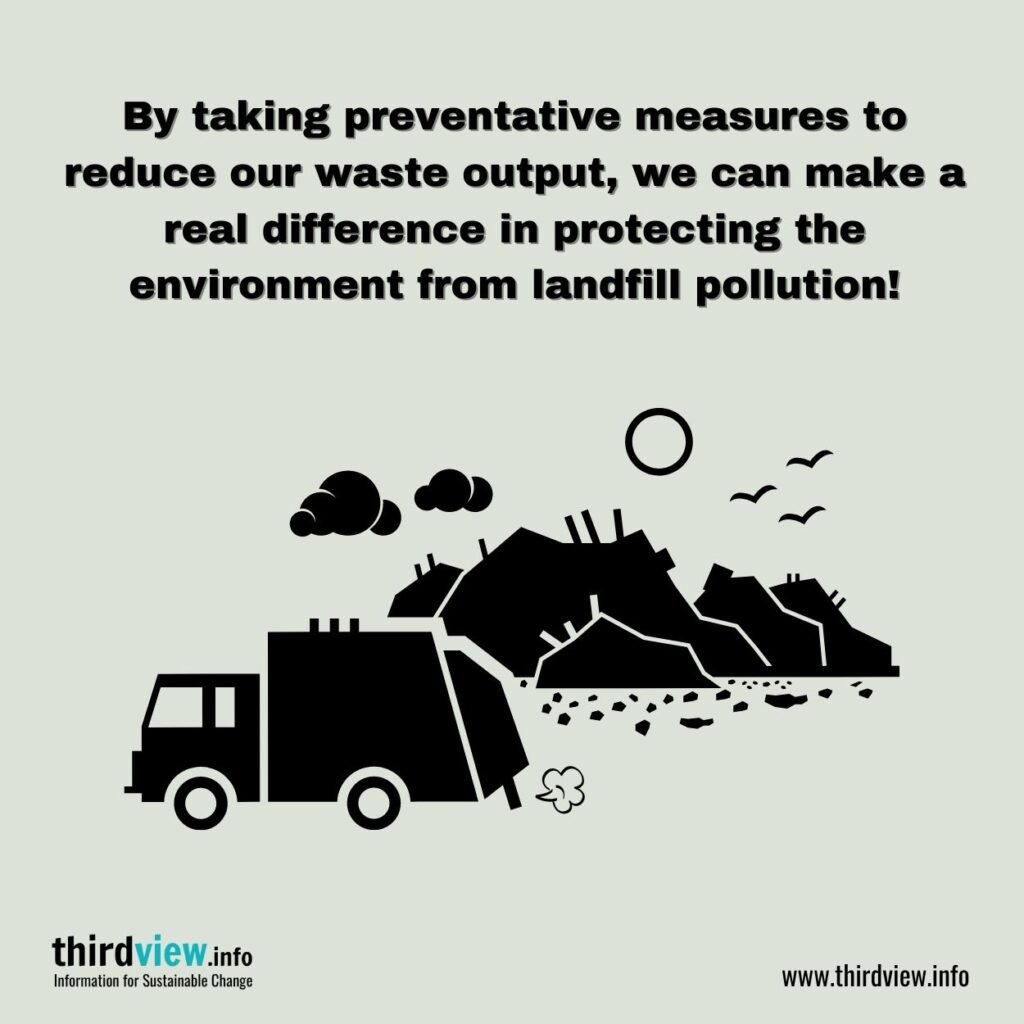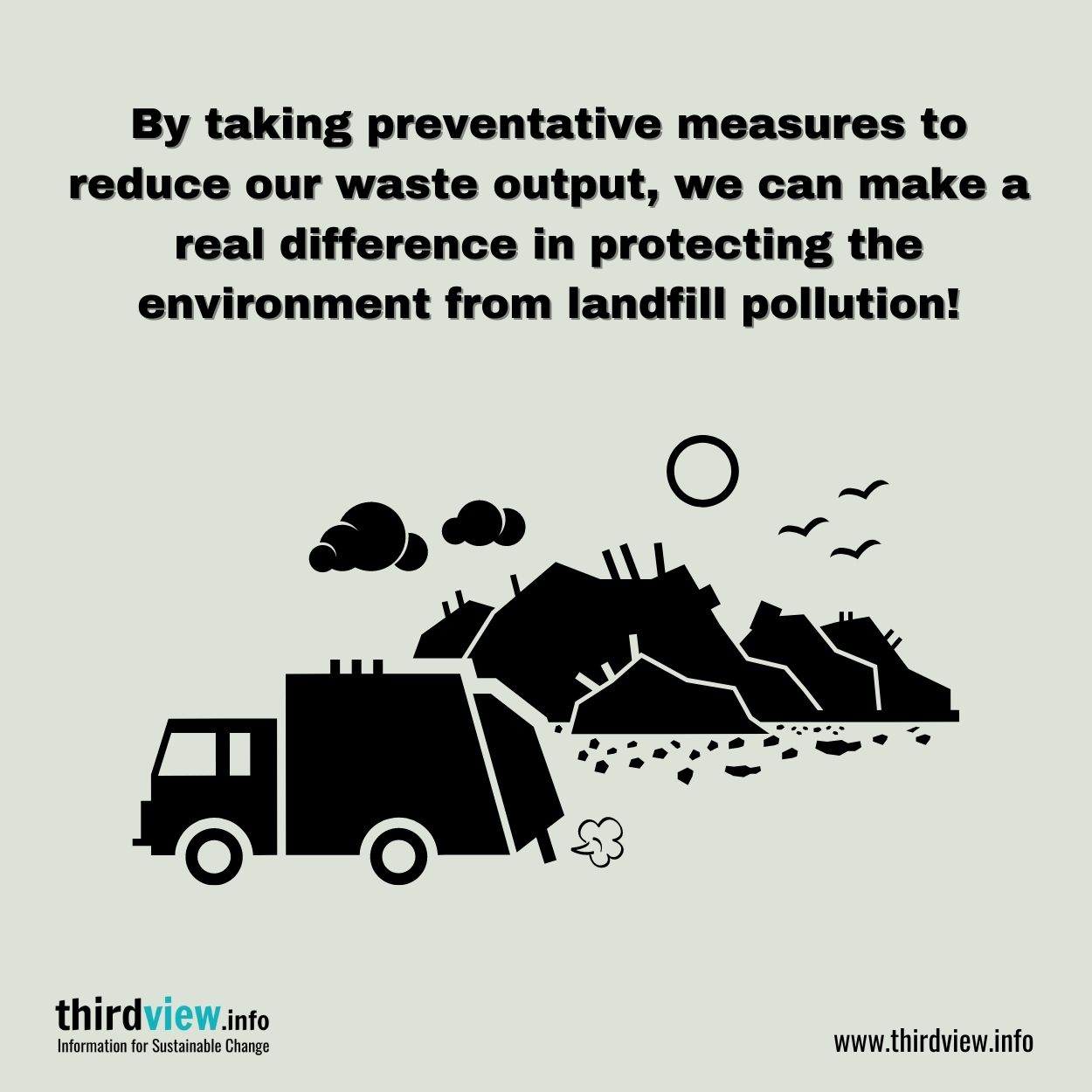Landfills are a major source of environmental pollution. They are filled with all kinds of pollutants that seep into the ground, contaminating local water supplies and leading to a host of other problems. It’s essential that we make an effort to reduce our waste production and consumption in order to protect the environment from the damage caused by landfills. Let’s take a look at what landfill pollution is, why it’s so dangerous, and how we can take steps to reduce our waste output.
What is Landfill Pollution?
Landfill pollution occurs when hazardous materials from landfills leach into local waterways or the air. These materials include industrial chemicals, heavy metals, pesticides, oil, grease, solvents, paints and other petroleum products.
The Effects of Landfill Pollution
Landfill pollution is a serious problem that affects air, water, and soil quality. Landfill gases contain volatile organic compounds (VOCs), which are hazardous to human health. These gases are released into the atmosphere, where they contribute to climate change by trapping heat near the Earth’s surface. They also lead to acid rain, which damages crops and other plants. In addition, leachate—the liquid that collects in landfills—can leach into nearby groundwater supplies if not properly managed, introducing pollutants into drinking water sources. When these materials enter our environment, they can cause a range of health problems including respiratory illnesses, skin irritation and even cancer.
How Can We Reduce Our Waste Output?
The best way to reduce our waste output is by changing our habits. We should strive for zero-waste living whenever possible by avoiding single-use plastics such as plastic bags and straws. Composting food scraps is another great way to reduce landfill waste; composting food scraps prevents them from ending up in landfills where they can release methane gas into the atmosphere. Additionally, we should try to buy products made from recycled materials as much as possible. This will help reduce the amount of waste that ends up in landfills because recycled items can be reused multiple times before they need to be discarded. Finally, it’s important to properly dispose of hazardous materials such as paint cans or motor oils at designated disposal sites rather than throwing them in the garbage where they could potentially seep into local waterways or the air if not disposed of correctly.
Landfill pollution is a serious issue that has far-reaching consequences for both human health and the environment – but there are things we can do about it. Reducing our personal waste output is one way we can help combat this problem – by avoiding single-use plastics like plastic bags and straws; composting food scraps; buying products made from recycled materials; and properly disposing of hazardous materials at designated disposal sites when necessary. Doing these simple things will go a long way towards reducing landfill pollution now as well as for future generations.


